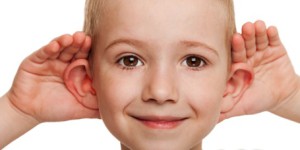 The medical community’s insight into the mechanics and treatment of ADHD (Attention Deficit Hyperactivity Disorder) has deepened dramatically in the last decade. Fortunately, this expansions of knowledge has inspired the development and improvement of therapies to support children in school struggling with the impact ADHD can have on learning processes, academic performance, and confidence. Of all the kids who are affected by ADHD, as many as 80% do not experience a meaningful reduction in psychotherapies when they enter their teenage years. Once adulthood begins, half of these individuals continue to live with significant psychopathologies.
The medical community’s insight into the mechanics and treatment of ADHD (Attention Deficit Hyperactivity Disorder) has deepened dramatically in the last decade. Fortunately, this expansions of knowledge has inspired the development and improvement of therapies to support children in school struggling with the impact ADHD can have on learning processes, academic performance, and confidence. Of all the kids who are affected by ADHD, as many as 80% do not experience a meaningful reduction in psychotherapies when they enter their teenage years. Once adulthood begins, half of these individuals continue to live with significant psychopathologies.
These numbers may well be underreported. As adults, the challenges inherent to living with ADHD are at times less overt. Many people have at this point lived with the condition their whole lives and so have effectively adapted to suppress a certain amount of trouble they have with things like impulsiveness, inattention, or hyperactivity. However, the difficulties to function at the highest possible level do remain. If you had ADHD as a child, you are very likely to continue having it as a grownup. This means an increased likelihood to find concentrating, following instructions, respecting deadlines, or even remembering simple information difficult. As a result, serious emotional distress can become commonplace. Social interactions and even career success are often jeopardized.
Compounding all these problems in adulthood is the fact that people who struggle with ADHD enjoy normal or even above average IQs. As such, they deal with the uniquely frustrating experience of regularly being misunderstood, as well as remaining fully cognizant of their problems reaching their full potential. A common consequence of this difficult dynamic is that these individuals can turn to high-risk behaviors (like substance abuse). Depression can also be a common occurrence, as failing to live up to their expectations and those of their loved ones or peers weighs heavily on their shoulders.
Since ADHD is a neuro-cognitive disorder, a neuro-cognitive strategy can alleviate some or all of its symptoms. The proper therapy and training can yield phenomenal results with real and lasting improvements in the lives of people struggling with attention deficit disorders and learning disabilities. ACE Clinics betters brain regulation by training core skills such as visual processing, auditory processing, divided attention, multitasking, and working memory. Improving the performance of the frontal lobes through a specialized program sharpens general attention and executive functions. Permanent gains in cognitive performance absolutely have the potential to transform lives, especially for adults struggling to finally improve their cognitive function.
